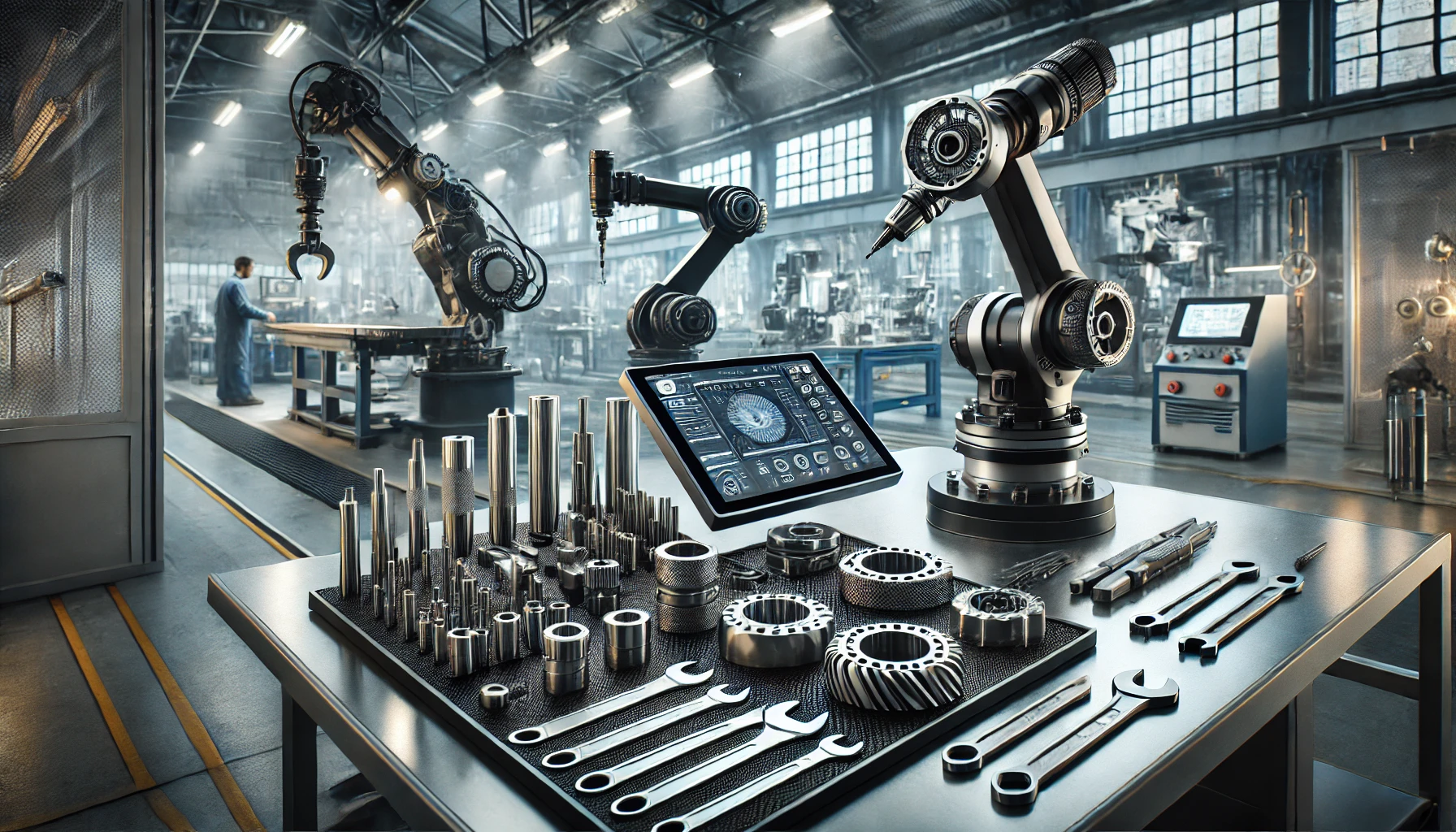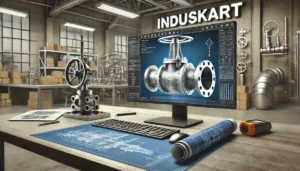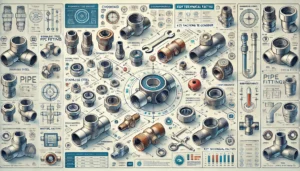Industry today requires maximum efficiency, accuracy, and adaptability. Unfortunately, standard tools can only suffice for general purposes, and often fail to meet the specific requirements of specialized tasks. In these instances, customized industrial tools become an indispensable asset, as they provide business specific solutions that greatly improve performance.
Enhanced Performance and Efficiency
Custom tools serve their purpose by being crafted to fit the exact requirements of particular applications. Such precision makes sure that not only is there minimal effort or time wasted, but also that the performance is optimal. Such a strategy can be further observed in the manufacturing processes. Specialized tools known as custom tooling can aid in narrowing the amount of manual adjustments and setups that are required. As a result, faster cycle times, heightened throughput, and increased overall productivity is observed. Boosted productivity also ensures the business is operating at maximum efficiency. Moreover, custom tools that promote automation and accurate machining prove to be fruitful in the automotive, aerospace, and heavy machinery industries specifically. These industries heavily benefit from a reduced reliance on manual labor.
Improved Quality and Precision
With customized tools created for specific tasks, there is better quality of output. Custom tools help reduce the margin for error common with standard tools. This makes sure every operation is done with the utmost accuracy. This is particularly important in industries where strict standards need to be maintained such as aerospace, electronics, and medical devices. The ability to consistently produce high-quality components with tight tolerances can be the difference between success and failure in these sectors.
Cost-Effectiveness Over Time
Custom tools may require a high initial investment compared to standard tools, but the long-term benefits outweigh the costs. Custom tools are created for greater efficiency and durability which leads to less wear and tear, lower maintenance costs, and finally increased lifespan. The increased efficiency, along with reduced error rates, equals a large amount of savings long term. Industries investing in custom tools will have increased fiscal performance due to fewer production mistakes, reduced material waste, and less machine downtimes due to tool damage.
Customization and Modification of Adaptable Tools.
Every business has its own set of problems and targets. Special tools are made to address these distinct requirements, providing solutions that are beyond the scope of standard tools. This enables people to make tools that function better and use them in ways that do not interfere with their services. Custom assembly shops or grade level assembly lines can use tools that are specifically tailored for them, increasing productivity, and minimizing the amount of time that is spent devising workarounds.
Enhanced Safety and Ergonomics
Ergonomically custom made tools may facilitate the ability of a person to use a lesser amount of force, especially when compared to mass produced tools. Certain products and services geared toward construction may enhance safety by redesigning the tool with improved grip or reducing the weight of the item. When businesses give priority to the operator’s comfort and safety, productivity improves due to work related injuries. Moreover, there are few tools that are designed to apply less strength which in turn helps to reduce incidents of injury, especially for workers engaged in physically demanding industries.
Advance and Develop Your Business
Custom tools give businesses the opportunity to create tailored options to suit their needs which allows them to adapt to increased production demands easier and quicker. Investing in custom solutions enables companies to advance their operations without complete overhauls since their components can easily adjust to functional advancements and expansions. This flexibility is extremely helpful in fields undergoing rapid technological development like automation or robotics industries.
Competitive Advantage
The ability to produce high standards products in a competitive market gives a company unrivaled appeal. Businesses are now able to boost their competitive edge by adopting custom tools that allow them to enhance their production processes, ensuring shorter lead times while maintaining the high quality. These advantages enable the business to meet and exceed customer expectations while simultaneously maintaining their best position against those businesses that rely on standard tools. Custom tooling gives businesses the chance to increase their output while maintaining their accuracy, thus enabling product consistency while amplifying customer satisfaction.
Environmental Benefits
Tailor-made instruments may support the quest for sustainability by minimizing the wastage of materials and energy. With precision tooling, materials are used effectively and processes are performed with enhanced efficiency. For example, application of custom-built tools in construction and manufacturing industries have the dual advantage of helping firms achieve waste reduction targets and cost-savings. Moreover, efficient tooling technologies also help reduce operational expenses and strengthen the green footprint.
Integration of Industry 4.0 Technology
With the advent of Industry 4.0 technologies, the significance of industrial customized tools has grown tremendously. Businesses have begun to adopt smart manufacturing systems, IoT machinery, and AI automation within their workflow. Custom tools with built-in sensors and efficient data collection features allow easy integration into these advanced systems and enable real-time tracking and maintenance forecasting. The deep embedment of intelligence in tools increases overall productivity of the factory, reduces outages, and improves data-driven managerial decisions.
Conclusion
It is quite evident that from tailored industrial tools, so many benefits that cannot be achieved by using a standard tool set. Superior quantified performance and precision, lowered expenses, and elevated safety are just a few of the reasons why tailored tools are more effective. Improved tooling can ensure company’s success through operational productivity, competitive advantage, and business sustainability in an ever changing industrial scenario. Increased diversity and complexity in the modern economic ecosystem will only bolster the importance of custom tools in improving efficiency, product quality, and sustainability in manufacturing.










